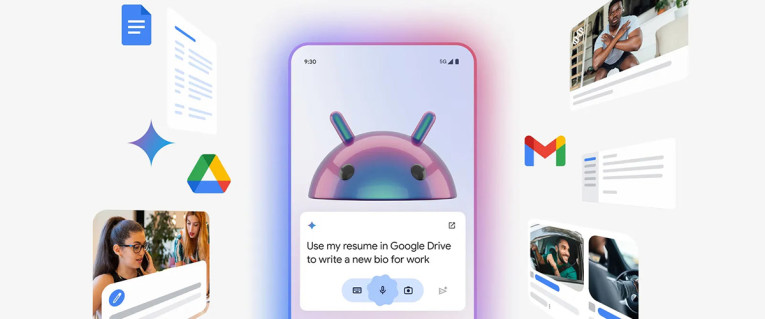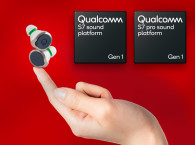The mobile industry is becoming increasingly weird. As if Apple's event formula for introducing the new iPhones every year wasn't already getting repetitive and frankly kitsch (it always was a bit), now every single company, from all the strange Chinese brands to Samsung and now even Google, are copying the formula ad nauseum. From the product naming to the fonts, the use of color gradients, presentation slides, and even the music in the videos, everything is methodically a direct copy of whatever Apple has done before.
To be fair to Google, at least the company's Pixel Buds aren't a direct copy of the AirPods, like everyone else seems to be doing these days. And the new Pixel Buds Pro 2 are a legitimate attempt to push the technology further, even if it is to create a new "me too" product in the category. But unlike the AirPods, at least there's a choice of 4 colors.
Essentially, the new Pixel Buds Pro 2 are said to offer "twice as much noise cancellation" as whatever they were comparing to, have a new design built for comfort and a secure fit, and are a step in the direction of having AI assisting both the device's features and the user - like everyone, including Apple, is now suggesting it will happen. No more Google Assistant, no more mention of "voice" - everything is AI, from the Pixel phones to the Google watch and the earbuds.
The ninth Made by Google event was all about "the best of Google AI", which of course it has to do with Google's Gemini (the latest name for its generative AI engine), the latest version of Android (remember that it already offers native support for Bluetooth LE Audio and Auracast) and the Pixel hardware portfolio. Google explains the philosophy behind this: "We believe that AI can make day-to-day life more productive, open up new ways to learn, and create ways for people to express themselves. This is especially true when AI is built into the devices that people carry around with them everywhere. We're innovating with AI at every layer of the tech stack — from our research and models that make new features and capabilities possible, to Android OS that brings the apps and services to billions of people to use every day, to our premium hardware built with a custom silicon chip."
With AI or without it, the Pixel Buds Pro 2 are Google's attempt to create true hearables - at least half way in that direction. These are a Bluetooth 5.4 design (obviously) with support for LE Audio - but there's no reference at all in their promotional materials of presentations, except for the specification list. For the first time in Google's earbuds, the Pixel Buds Pro 2 are equipped with an all-new custom-designed Tensor A1 chip to power Google AI, just like Apple did a long time ago by adding a neural processor to its Silicon architecture in the H2 to improve noise cancellation and adaptive processing features.
As Google explains, with the Tensor A1 chip in each earbud the Pixel Buds Pro 2 are designed to process audio ultra fast - "90 times faster than the speed of sound." That speed is used to analyze the environment captured by the 3 built-in microphones in each earbud, and rapidly cancel the noise according to the usage setting. With what Google calls Silent Seal 2.0 (they even trademarked it), the Pixel Buds Pro 2 are able to adapt the active processing of cancelation and transparency features "up to 3 million times per second." This package of Silicon, audio hardware, and advanced algorithms is what Google says "allows us to cancel up to twice as much noise as before, through a wider range of frequencies." So, we learn that the "twice as" compares with Google's previous Pixel Buds Pro earbuds, which were already a decent ANC design for Android users, and particularly for users of the Pixel phones.
What else does Google do with the Tensor A1 chip in the Pixel Buds Pro 2 earbuds? Apparently nothing exciting. Unlike Apple, which is promoting its "Adaptive" and "Augmentation" flags very high, Google only mentions the Transparency mode, active in-ear pressure relief, and Conversation Detection, as the naturally resulting features that are enabled by the ANC processing system. Also, the Spatial Audio and head-tracking features are timidly promoted "To make your favorite movies and shows sound just as realistic as if you were hearing them live." The Google team understood that without a music streaming platform to support those features, promoting Spatial Audio for music would be firing blanks, like many other brands already did.
As selling points, Google prefers to tout the ergonomic advantages of its very small design. The Pixel Buds Pro 2 are 24% lighter and 27% smaller than Pixel Buds Pro. "After analyzing 45 million ear scans and conducting real-life wear tests, we designed Pixel Buds Pro 2 to be the most comfortable and secure fitting earbuds. Thanks to the new twist-to-adjust stabilizer, your earbuds stay put while still offering maximum personalized comfort. And they come with four different sized eartips, so you’ll be able to find the perfect fit."
It also helps to understand the new design by looking at the list of built-in sensors. There is a voice accelerometer in each earbud to assist on the filters for calls and voice recognition, plus a motion-detecting accelerometer and gyroscope. All standard in current TWS earbud designs. There's also capacitive touch (tap and swipe) sensors for music, calls, and voice assistant controls on the surface of each earbud, plus an IR proximity sensor for in-ear detection to play and pause automatically. To assist the calls and voice recognition there are also wind-blocking mesh covers.
And what about the sound? Google says that the Pixel Buds Pro 2 "deliver premium sound" and that its "acoustic architecture is redesigned from the ground up to prioritize faithful and engaging sound across the full frequency spectrum." What is this effectively? Large 11mm dynamic drivers, coupled to a new high-frequency chamber that enhances "clarity and openness". Everything else is assisted by a dedicated DSP path, that Google says "is pretty rare, even in premium earbuds". "Google Tensor A1 introduces multi-path processing to Pixel Buds Pro 2. Your music, podcasts, and movie audio pass from the source directly to your ears on a dedicated path, unaffected by the processing that happens during noise cancellation. That allows you to enjoy your content in its purest form."
Google also mentions that, thanks to the Tensor A1 processor, the latency for audio processing is much improved, supporting the adaptive features and the ability to cancel a wider range of frequencies and noise signatures. The low power Tensor A1 processor also improves the battery life even with ANC on, the reason why the Pixel Buds Pro 2 can now claim "up to 8 hours of battery life" or one hour more than the previous Buds Pro. This sets the bar high for the soon to be unveiled next generation AirPods Pro from Apple.
The Pixel Buds Pro 2 fail to innovate in other key technologies that should have been featured. Apart from the fact that there's no mention to lossless codecs (no codecs are mentioned at all, even though LE Audio support is claimed), there's no mention of any specific advantages to pair with Google Pixel devices, location, etc., like all the other earbuds have promoted. Yes, the new design supports Find My Device Network (Google's copy of Apple's Find My) and now there is a ringing speaker in the case like in the latest AirPods Pro. The charging case remains a similar USB-C design as the previous generation, and doesn't support Qi2 Wireless Charging - which one would assume could have been a major selling point.
What Google prefers to promote is the fact that the Pixel Buds Pro 2 now "do more than just play music, keep you focused and help you take phone calls." Why? Because of Gemini, the new "hands-free, eyes-free virtual AI assistant" paired to the Pixel smartphone in your pocket. "Need walking directions to the nearest public transit? A reminder of an upcoming appointment? New song recommendations? Gemini can do all of that and more, even when your phone is locked and in your pocket."
And with Gemini Live, the Pixel Buds Pro 2 earbuds are said to support "a mobile conversational experience that uses our state-of-the-art speech technology to let you have extended conversations with Gemini. It’s like having a sidekick right in your pocket, one that can chat with you about new ideas or even practice for an upcoming interview." There we go. It's hype all over again, as if connecting a generative AI model to Google Assistant had magically solved all the challenges of natural language voice interfaces. It didn't.

Everything that was promoted at this Google event was based on the merits of the company's AI efforts now embedded in Android, but which will be powered by on-device features. In that respect, Google got the message from Apple regarding AI-embedded on the iPhone and all Apple devices. Google even mentions "privacy" which is unheard of. Specifically they stated that Android is now "the first mobile operating system with a large, on-device multimodal AI model — called Gemini Nano — your data never leaves your phone for some of the most sensitive use cases. With Gemini Nano on Pixel 9, you can use Call Notes to summarize audio from a phone call or Pixel Screenshots to save and organize your images."
It seems clear that Google is going to start "forking" its own AI-powered implementation of Android to optimize the features in its own hardware. Effectively emulating Apple successful strategy. More reasons for all the Chinese smartphone makers to start ditching Android for good and invest in their own operating systems - already under development.
And suddenly, Google Assistant is now Gemini. "Gemini is the most widely available AI assistant — supported in 45 languages, in more than 200 countries and territories, and we’re continuing to add more." Let's see how many more manufacturers will remain supportive.
For now, the Pixel Buds Pro 2 earbuds are available to pre-order for $229, and they’ll be on shelves September 26, 2024, in four colors: Porcelain, Hazel, Peony and Wintergreen.
www.google.com






